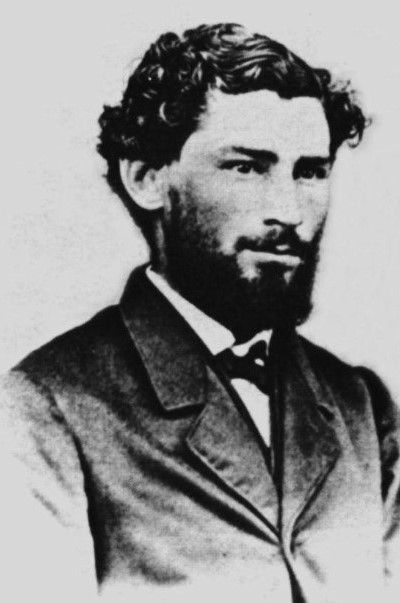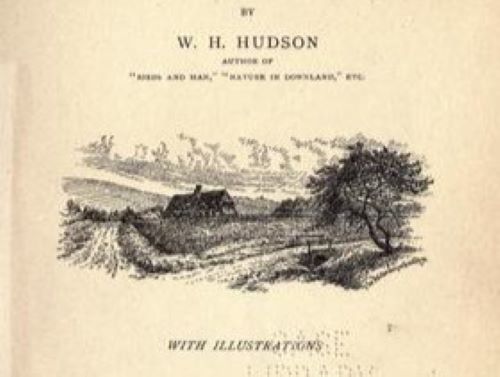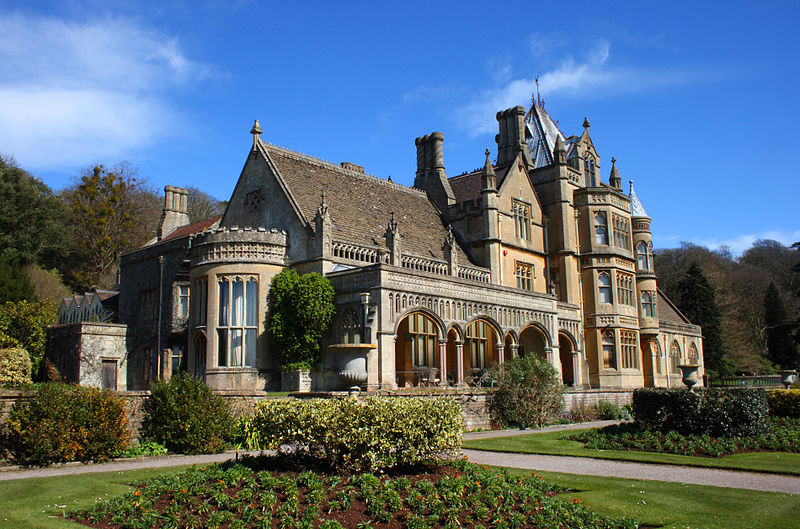The University of Winchester will be hosting a special event this autumn to celebrate the work of one of Britain’s greatest early environmentalists and his links with South America.
Dr Graciela Iglesias-Rogers, Senior Lecturer in Modern European and Global Hispanic History, describes nature writer W.H. Hudson as ‘the Chris Packham of the 19th century’.
Born on a ranch near a tributary of the River Plate in Argentina to American parents, William Henry Hudson came to Britain aged 33 to pursue a career as a naturalist and author and struggled for many years until he turned to writing about his native Argentina.
Hudson then penned a series of successful books about British wildlife and countryside including Hampshire Days (1903) and A Shepherd’s Life (1910). He used his newfound fame to campaign for the protection of nature, particularly birds – many of which were being slaughtered to adorn women’s hats.

WH Hudson
“Hudson was one of the first to write about British birds being at risk of extinction and to lobby for their protection,” said Dr Iglesias-Rogers. “He was really ahead of his time.”
Dr Iglesias-Rogers argues that Hampshire Days is not a bucolic account of a by-gone era, but an early rallying-call to defend biodiversity and rural heritage shaped by Hudson’s experiences in the Hispanic world.
When he died Hudson left his entire estate to the Royal Society for the Protection of Birds (RSPB) which he had helped found. In Argentina, his birthplace was made into a museum and ecological park named after him. In 2021, to mark the centenary of his birth, the Argentine Congress declared his birthday, 4 August, Argentina’s National Day of the Naturalist.

In the event, entitled ‘Hampshire Days (1903): wildlife & rural activism from the Hispanic-Anglosphere’, Dr Iglesias-Rogers will be joined by Conor Mark Jameson, a veteran of the RSPB and author of the recently published book Finding W. H. Hudson: The Writer Who Came to Britain to Save the Birds (London: Pelagic Publishing, 2023).
It will take place on 8 November at St Alphege Building 202 in the University’s King Alfred quarter from 4.30pm to 6pm and online. You can book here.
The event has been organised by the Modern History Research Centre and the Hispanic-Anglosphere network – an international research project co-funded by the University of Winchester which runs in partnership with the National Trust-Tyntesfield and the Centre of American Studies of the Universidad Adolfo Ibáñez in Chile.
The network was set up five years ago with funding from the AHRC (Arts and Humanities Research Council) and it continues to add to the store of knowledge about the people who helped forge links between the British Isles and the Hispanic world from the late 18th century to the eve of the Great War.
The period covered by the project coincides with the dislocation of the Hispanic world as Spanish dominions in the Americas sought independence and UK merchants, scientists, writers and artists began to establish long-term partnerships with these new nations outside the British Empire. The 19th century also saw many thousands migrate from the British Isles to South America, particularly to Argentina.
Sections of the network’s latest publication - The Hispanic-Anglosphere from the Eighteenth to the Twentieth Century - An Introduction (New York and London: Routledge, 2021) - are now available to all on the publisher’s website and on the project’s online platform.
Among the new material available to view are 25 key biographies bringing the number of life-stories listed on the site to more than 100.

Among those listed is William Gibbs who bought the Tyntesfield estate near Bristol and created the neo-Gothic mansion (pictured) that can be seen today. This wealthy ‘British’ gentleman was actually Guillermo Gibbs, born in Madrid to a family of debt-ridden wool merchants who’d moved to Spain from Devon.
Gibbs made his fortune from quinine imported from the Andean region in the Americas and his profits were boosted by pandemics of malaria and yellow fever. Later he secured a monopoly in the import of Peruvian guano (bird manure), the fertilizer that revolutionized agriculture in the industrial age.
“For long, the little that it was known about William Gibbs was banalized, just reduced to say that he was commoner who had his fortune ‘from selling birds from foreign birds.’ Our research demonstrated that this was inaccurate by revealing a far more interesting story involving love, social prejudices and pandemics set against a backdrop of wars and economic scarcity with echoes in the present day”, said Dr Iglesias-Rogers. The whole story is freely available here.
Another figure whose story is told on the website is Robert Steel, known in Spain as Roberto Steile. He was born in Winchester in 1788. A regular in the Royal Marines, he volunteered for the Spanish Army in 1812 and fought bravely in the Peninsular War. In return he was rewarded with the Order de Carlos III (1819) from Spain and a knighthood in Britain (1817).
Steel remained committed to Spain after the war and was a member of the London committee of support to Spanish Liberals in the First Carlist war (1835). His commitment to the cause led to him being jailed twice - for debt in 1817 and for libel in 1828. Despite his prison record he was appointed Deputy Lieutenant of Dorset from 1838 until his death in 1840.
Find out more at http://hispanic-anglosphere.com where there is an online exhibition “Exploring the Hispanic-Anglosphere” and a free downloadable Hispanic Itinerary for visitors of NT Tyntesfield.
Back to media centre